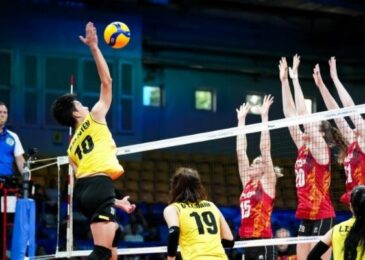If you’re responsible for a diverse group of student athletes, you might be wondering how to effectively support each of them in an increasingly complex social environment. Coaches today are expected to understand a wide range of athlete experiences and use that understanding to help their athletes and sport program thrive.
José Miguel Burgos, head coach of the boys and girls soccer program and Spanish teacher at Catalyst Maria High School, runs an incredibly diverse program. As the inaugural winner of TrueSport and SportsEngine’s Champion Coach Recognition Program in 2019, Burgos has discovered a few key strategies for supporting a diverse program.
Bạn đang xem: How to Support a Diverse and Multi-Cultural Team
Love
The foundation for success begins with a genuine love for your players and the sport itself. It’s crucial to focus on loving the athletes for who they are as individuals. “Many of us work in communities where there’s terrible injustice, and the only way that I have been able to combat that is with love, compassion, and kindness,” Burgos says.
He emphasizes the importance of letting your athletes know that you love them, win or lose. This generation of athletes is exceptional, and it’s our job to make sure they realize their full potential.
Authenticity
Xem thêm : Men’s Sitting Team Shows Promise Despite Loss
Burgos warns against artificial efforts to demonstrate cultural acceptance, such as playing specific music or adopting trendy language. Kids can easily sense insincerity, so it’s crucial to be genuine in your actions. “Picking great music that the kids respond to, or letting them pick it, is one step, but you cannot fool kids into thinking you care about them if you don’t,” Burgos explains.
Understanding
Diversity extends beyond ethnicity, gender, and sexuality; it also includes factors like income. In the case of soccer in the U.S., it can be an expensive sport. Coaches should be attentive to athletes who may struggle financially, ensuring they feel comfortable discussing their circumstances. Although you may not be able to help everyone, you’ll at least have the opportunity to try.
Commitment
Understanding goes hand in hand with a commitment to helping athletes when possible. This may involve applying for grants on behalf of certain athletes or reevaluating the team’s budget and travel plans to ensure inclusivity.
Reflection
For coaches whose teams lack diversity in multicultural areas, it’s essential to question what the program might be missing. Are you inadvertently making your sport less accessible to certain groups of young athletes? Take a moment to reflect on these potential barriers and determine how you can address them.
Longevity
Xem thêm : USAV Updates International Transfer List of 328 Athletes
The purpose of youth sports reaches far beyond winning tournaments or championships. It’s about promoting lifelong participation in a sport that fosters health, strong social connections, and enjoyment. As you strive to make your team more inclusive, remember that you’re building a legacy and shaping the young athletes into better individuals. “Success isn’t just based on how often you win,” Burgos reminds us.
Unity
A diverse team presents an excellent opportunity to embrace unity—a shared purpose where everyone can be different yet work together towards common goals. “I always asked my players, ‘Can you fly? Can you walk on water? If you can, raise your hand right now.’ They don’t,” says Burgos. “And that simple shift helps them see each other as human beings.”
Play
Ultimately, sports serve as a universal language, a source of fun and joy. Burgos recalls a visit to Machu Picchu, where he and his group stopped at a school along the way. Despite the language barrier, as soon as he introduced a soccer ball and started playing, something magical happened. “Every single kid there was suddenly paying attention,” he says. “Youth sports give us this space to play, and there isn’t any better language to communicate.”
Takeaway
As teams become increasingly diverse, it’s crucial for coaches to understand how to support different athletes. By embracing love, authenticity, understanding, commitment, reflection, longevity, unity, and play, coaches can create an inclusive and supportive environment for all their athletes.
FAQs
-
How can I support a diverse and multi-cultural team?
Supporting a diverse team starts with genuine love and compassion for your athletes. It’s important to be authentic, understanding, and committed to helping athletes when possible. Reflection, longevity, unity, and play are also key aspects to consider. -
How do I create a multi-cultural environment without being insincere?
Avoid artificial efforts to demonstrate cultural acceptance. Instead, focus on genuine actions and make an effort to understand and appreciate the diverse backgrounds and experiences of your athletes. -
What should I do if some athletes can’t afford certain aspects of the sport?
Encourage open communication and ensure athletes feel comfortable discussing their circumstances. While you may not be able to help everyone, you can explore options such as applying for grants or adjusting the team’s budget to promote inclusivity.
Summary
To support a diverse and multi-cultural team, coaches must prioritize love, authenticity, understanding, commitment, reflection, longevity, unity, and play. By embracing these principles, coaches can create an inclusive and supportive environment where athletes can thrive. Remember, success isn’t solely based on winning but on the lifelong impact sports can have on individuals.
Nguồn: https://alpinetgheep.com
Danh mục: Volleyball


